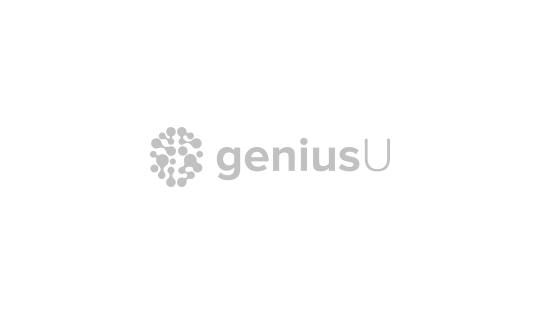 Two decades after Yusuf Karodia launched Mancosa, a distance learning school to teach South Africans business skills, he sold up to UK private equity firm Actis.
Two decades after Yusuf Karodia launched Mancosa, a distance learning school to teach South Africans business skills, he sold up to UK private equity firm Actis.
From nurseries to exam tutoring and adult education, teaching businesses are booming as populations rise and cash-strapped governments fail to keep up with demand.
With 263 million children out of school worldwide, according to 2014 data from the United Nations, investors are keen to access a growing sector with few publicly-listed companies.
Karodia said Actis was one of a stream of interested private investors.
"We had about an overture a week to partner with someone," he told Reuters.
Mancosa is now part of Actis's expanding higher education portfolio in Africa. It has spent $275 million since 2014, investing in education institutes across the continent which it groups under the brand name Honoris Universities and plans to list on a stock market in the next two to three years.
Karodia, who will also get a stake in Honoris, says there is huge demand for education in Africa.
"Quality education - especially coming from the private sector - is going to play an ever increasingly important role," he said.
The International Commission on Financing Global Education Opportunity estimates that international financing for education in low- and middle-income countries will need to increase from today's estimated $16 billion per year to $89 billion by 2030.
Jetilde Carlos is a 22-year old final year finance student at the Varsity College in Cape Town, owned by Johannesburg-listed ADvTECH Group. Carlos missed out on a place at a state university.
"Its not that my parents had the money but they really wanted a better life for me. They didn't want me to sit at home looking for job when I might not even find one," she said.
"The degree is worth it in the end"
Investors are keen for a slice of the market because the fee-paying structure guarantees a regular income stream. The sector is also relatively resilient to economic ups and downs as parents increasingly prioritize their children's education.
"It goes with the whole consumer spending (trend) in emerging markets, and as income levels rise and there is more disposable income available what you're seeing is the population is looking to spend in areas such as education," said Patricia Ribeiro, an equity portfolio manager at American Century Investments.
Carlos paid a deposit of 25,000 rand ($1,876.38). If you pay up front the total is 70,500 rand but the monthly payments that she has chosen bring the total to about 90,000 rand for one year's tuition.
EXPLOSIVE GROWTH
The sector is dominated by private equity players. MSCI's emerging equity index contains only three education stocks - New York-listed Chinese firms TAL and New Oriental Education and Brazil's Kroton.
Morgan Stanley describes shares in Chinese education operators as "attractive".
China's education market catering for children from nursery to end of secondary school will grow 8 percent annually to become a 3 trillion yuan ($460 billion) market in 2020, the bank told clients.
Recent regulatory changes are set to benefit private tutoring firms, many of which prepare high-school pupils for university.
TAL said in July that student enrolment was up more than 60 percent year-on-year, with a matching rise in revenue. Its stock has soared 180 percent since January.
New Oriental Education projects revenue growth of as much as 24 percent in the three months to end-August. Its shares are up 114 percent since the start of 2017.
"China is very exam-driven from kindergarten on and they are competing more and more with U.S. schools," said Sandra Ackermann-Schaufler, senior portfolio manager for emerging markets at SEI.
"If anyone thinks it's tough to get into U.S. universities they should look at the top Chinese universities....the growth you could see is explosive growth."
Valuations are soaring, possibly because fund managers are chasing too few companies. TAL's price-to-earnings (P/E) ratio is nearly 130, while New Oriental Education hovers around 50. In contrast, MSCI's emerging equity index trades at a P/E of around 12.
"If you look at PE historically or if you look at PE this year, they look very expensive," Julian Mayo, portfolio manager at Charlemagne Capital.
QUALITY CONTROL
Brazil became another destination for those seeking exposure to education stocks after 2009 when the government boosted loan programs for students attending for-profit colleges.
One of the main beneficiaries was Brazil's largest for-profit college operator Kroton Educacional.
While the recent recession in Latin America's biggest economy led to a fall in student loans, the biggest companies are already well-established, fund managers said.
Results published last month showed revenue growing near double-digits on the quarter, with gross margins well above 70 percent. Kroton's stock has risen more than 50 percent since the start of the year.
The Gulf region also offers opportunities. Kuwait-based HumanSoft, which establishes and manages private universities and colleges listed in 2005.
United Arab Emirates-based GEMS Education, which operates more than 250 schools across 14 countries and counts Blackstone among its stakeholders, has indicated plans to list.
In Africa, many governments want more private investors in education but they are approaching it cautiously. They want regulations in place to ensure the quality is high.
Pelonomi Venson-Moitoi, Minister of International Affairs and Cooperation in Botswana said some young people had left private universities with certificates that "opened no doors".
She said it was difficult to make sure "the people who are investing in education are not fraudsters, what we are finding is that some people are not there to deliver quality education."
"We learned this very badly ourselves... but now people come in and invest, and this is taking a huge load off the government," she said.
(Additional reporting by Mfuneko Toyana in Johannesburg, Sujata Rao in London and Dion Rabouin in New York; Editing by Anna Willard)
Copyright 2017 Thomson Reuters.















Leave a Reply